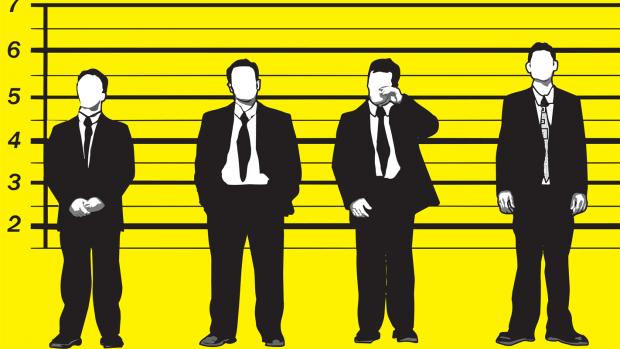Can We Fight Corporate Crime? Forbes’ Neil Weinberg Thinks So

The possible misdeeds of Goldman Sachs, one of the biggest investment firms in America, and the proven misdeeds of other financial institutions (think Madoff, Enron, WorldCom) provide the larger backdrop in the financial markets against which students from NYU-Poly’s Department of Financial Engineering will graduate this spring.
Neil Weinberg, executive editor at Forbes magazine and its online counterpart since 2008, described the environment that awaits those graduates during the lecture “Corporate Crime: Why the Epidemic Continues and How To Cure It” on April 27 (video highlights below).
Weinberg was formerly an investigative reporter for Forbes, where his stories focused on controversial practices in business and politics. He also co-authored Stolen Without A Gun: Confessions from inside history’s biggest accounting fraud — the collapse of MCI WorldCom (Etika Books, 2007) with Walter Pavlo, Jr., a convicted white-collar criminal.
Speaking to a large group of the Institute’s financial engineering students and faculty, Weinberg lectured on corporate crime, the conditions that nurture it, and potential methods for curbing its rise. “I’m a firm believer in the free market economy,” he said before citing what the United States loses in fraud each year: $994 billion. That figure equals the amount the country spent over six years in its fight to win the war in Iraq, yet the money continues to disappear annually.
“Very often people think of white-collar criminals as separate from them, but you shouldn’t assume it’s the other person,” Weinberg said. The psychological conditions of what he calls “the fraud triangle” can operate on anyone. Its three points — opportunity, incentive, and rationalization — find an easy example in the everyday occurrence of drivers who go over the speed limit, he offered.
Drawing on a writer’s facility for comparison, Weinberg narrated a driver’s probable thoughts: there aren’t any cops around (opportunity). If I speed, I might not be late for my meeting (incentive). The guy ahead of me is already speeding anyway (rationalization). Corporate crime follows that same pattern, and legislation hasn’t and won’t break the cycle.
“You can’t regulate ethical behavior,” Weinberg said. “I don’t think there’s a silver bullet, no magic wand you can wave in Washington.”
Although congressional representatives may disagree with him as they continue to scrutinize the practices of Goldman Sachs and other financial companies, Weinberg believes other approaches are worth pursuing: employee training about workplace ethics; establishing meaningful consequences for perpetrators of white-collar crime, as well as setting a no-tolerance tone from business leaders; and limiting pay. “Pay people to do bad things, and many will fulfill your objectives,” read his PowerPoint slide.
Good behavior “can’t just be a statement carved on the front of a company’s building,” Weinberg said. It must also be practiced.




